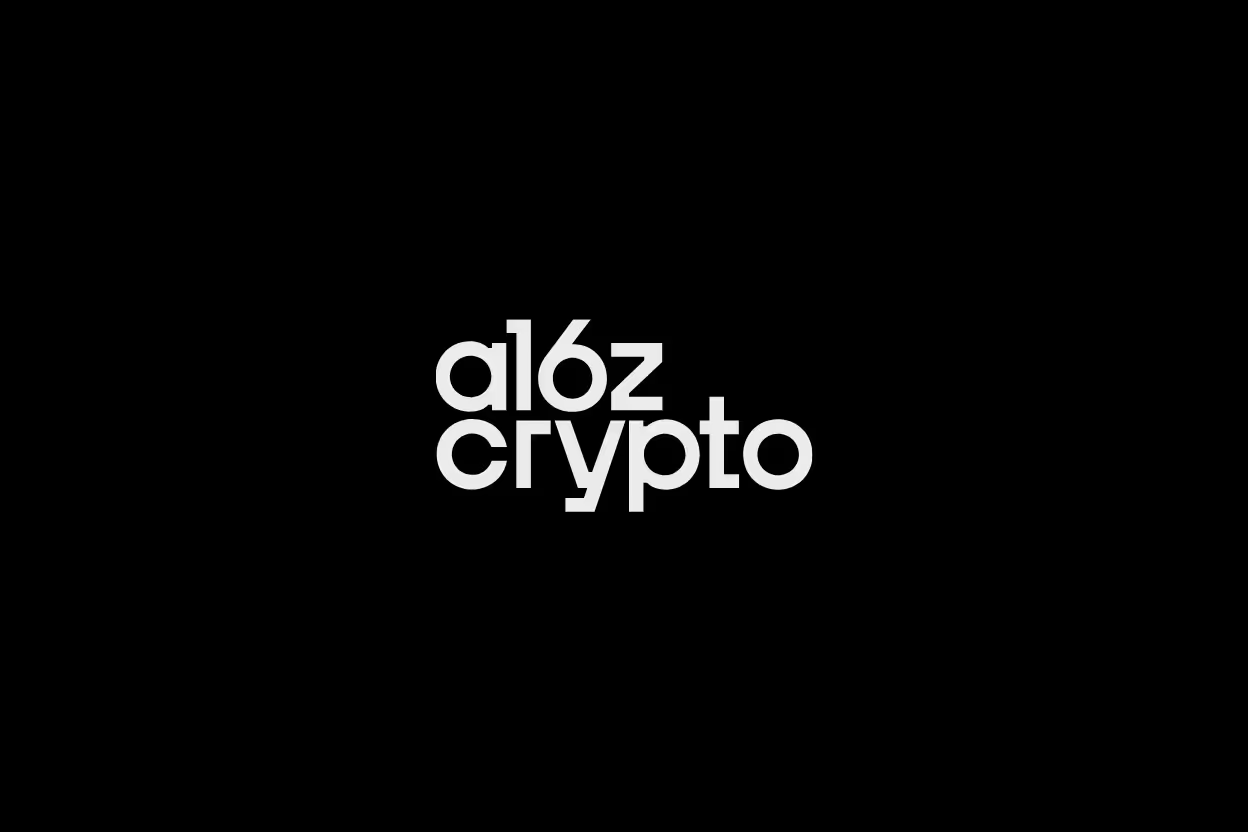The a16z Crypto Startup School stands as a key resource in the crypto startup ecosystem, offering early-stage founders access to expert knowledge, mentorship, and practical tools. Designed to address both the technical and regulatory challenges unique to crypto ventures, it equips founders with the skills needed to build scalable projects, design effective governance models, and navigate market complexities. This article will break down core lessons from the program, providing clear, actionable insights that can help crypto founders accelerate growth and avoid common pitfalls. Whether you're wondering how to approach product-market fit in Web3 or how to align your community around decentralized governance, these lessons shed light on what it takes to succeed in 2025’s crypto startup landscape.
Understanding the Crypto Startup School by a16z
The a16z Crypto Startup School offers a focused opportunity for early-stage crypto founders to gain deep insights and guidance tailored specifically to blockchain startups. The program is designed to complement the tools and knowledge founders might already have, without asking for equity or any fees. It’s a rare chance to learn directly from industry veterans and tap into a network that can open doors beyond what typical accelerators offer.
Program Overview and Accessibility
This program runs for about seven to twelve weeks, depending on the current iteration, balancing online and in-person sessions (typically hosted in tech hubs like Menlo Park or London). One of the most attractive features? It is completely free with no equity requirement. That means founders can join, learn, and connect without giving up ownership or paying hefty fees upfront.
The idea is to add value to what you already have, whether you’ve dabbled in crypto tech or are trying to find product-market fit in Web3. The school deliberately avoids being just another checklist accelerator, instead focusing on enhancing your existing resources and connections in the crypto startup ecosystem.
Curriculum Focus Areas
The program covers an extensive range of topics that every crypto founder needs to understand:
- Blockchain fundamentals: How consensus algorithms like proof-of-work and proof-of-stake work, and why decentralization matters.
- Cryptographic primitives: Essential concepts such as digital signatures, zero-knowledge proofs, and Merkle trees.
- Tokenomics: How to design incentive mechanisms, token issuance, and governance models that sustain community growth.
- Security practices: Best practices for smart contract security, audits, and mitigating common vulnerabilities.
- Legal frameworks: Navigating regulatory landscapes, understanding securities laws, and how token classifications impact fundraising.
- Go-to-market strategies: Building communities, launching projects, and scaling growth in the complex terrain of Web3.
By the end of the course, founders have not only gained theory but practical insights into applying these principles to real-world scenarios and challenges.
Mentorship and Network Advantages
One of the greatest assets of the Crypto Startup School is its mentorship from industry leaders. Founders receive direct guidance from successful entrepreneurs, investors, and technical experts who have firsthand experience building and scaling crypto companies. This mentorship can accelerate problem-solving, spark new ideas, and sharpen your strategy.
Beyond one-on-one mentorship, the program connects participants with a broad network of experts, potential co-founders, and investors. This network can become invaluable when raising capital or seeking partnerships. It transforms a startup from an isolated project into part of a thriving ecosystem.
The question is not just what you learn but who you meet, and the access to a16z's ecosystem opens doors that most early-stage crypto founders rarely find on their own.
Understanding these core elements of the a16z program helps reveal why it’s so well-regarded among crypto startup founders. It’s a cost-free way to acquire foundational knowledge, boost your network, and gain trusted mentorship—all tailored to the many nuances of building in crypto today.
Core Technical and Economic Concepts for Crypto Founders
Before diving into product and growth strategies, every crypto founder needs a solid grasp of core technical and economic concepts. These form the foundation of your startup’s design and long-term viability. Understanding how blockchain works as a decentralized computer, the cryptographic tools that secure it, the role of tokens in building value, and the challenges of scaling will set you apart as a founder who can thoughtfully build and sustain a robust network.
Blockchain as a Decentralized Computer
Think of blockchain not just as a ledger but as a globally shared, decentralized computer. Unlike traditional systems controlled by a single company or server, blockchain distributes computation and data storage across a vast network of participants. This design creates decentralized trust, replacing the need for a middleman with cryptography and consensus protocols.
Two of the most common consensus methods are:
- Proof-of-Work (PoW): Miners compete to solve cryptographic puzzles to validate transactions and secure the network.
- Proof-of-Stake (PoS): Validators are chosen based on how many tokens they hold and "stake" as collateral.
These protocols ensure every participant agrees on the state of the network without relying on a central authority. This paradigm shift means your startup’s application or platform exists on a neutral, permissionless infrastructure where trust is guaranteed by math and incentives — not by traditional institutions.
Cryptographic Foundations and Security
Security and privacy hinge on cryptographic tools embedded within blockchain protocols. Some fundamental elements every founder should understand include:
- Digital Signatures: Verify the ownership and authenticity of transactions. When a user signs a message with their private key, others can confirm with the public key that it’s genuine.
- Merkle Trees: Structures that allow efficient and secure verification of large data sets. They let nodes prove that a transaction belongs to a block without revealing all other transactions.
- Zero-Knowledge Proofs: Enable one party to prove something is true without revealing the underlying data — great for privacy-preserving features.
These tools protect system integrity while enabling innovations like confidential transactions and secure identity verification. Founders must prioritize cryptographic soundness to prevent hacks and build trust with their community.
Tokenomics and Network Effects
Tokens are more than just digital coins; they are the lifeblood of your network’s economy. Good tokenomics align participants’ incentives to grow and maintain the protocol.
Tokens can:
- Capture value: Through mechanisms like staking rewards and fees.
- Create network effects: The more users participate, the stronger the token’s utility and value become.
- Govern the platform: Giving holders voting rights or rights to upgrade the network.
Designing a token model affects your startup’s defensibility. Poorly designed tokens might lead to speculation without real utility, token dumps, or fragmentation of governance. Thoughtful models encourage long-term engagement and sustainable growth, making your network harder to replicate or displace.
Scalability and Future Improvements
Scalability remains one of blockchain’s biggest challenges. Base layers often face throughput limits, making transactions slower and more expensive as networks grow. To prepare your startup for broader adoption, it’s important to track advancements that extend capacity without sacrificing security or decentralization.
Some promising approaches include:
- Layer 2 solutions: Off-chain or side-chain protocols like rollups that bundle multiple transactions before submitting to the main chain.
- SNARKs (Succinct Non-interactive Arguments of Knowledge): Cryptographic proofs that verify computation without redoing it, cutting down verification time dramatically.
- Verifiable Delay Functions (VDFs): Cryptographic tools to introduce fairness and unpredictability in protocol operations.
Staying updated on these innovations helps position your startup to scale efficiently while maintaining trust and composability within the ecosystem. Scalability is not just a technical feature but a core part of how your network will grow and compete.
Grasping these core concepts equips you with the language and frameworks needed to build confidently in crypto. Technical fluency paired with economic insight gives you the tools to design systems that work today and scale tomorrow.
Startup-Specific Strategies and Lessons from Crypto Startup School
The a16z Crypto Startup School reveals essential strategies that early-stage crypto founders need to adopt to succeed in this fast-evolving sector. Unlike traditional startups, crypto ventures operate with new models of fundraising, community-building, legal frameworks, and security considerations that demand tailored approaches. This section breaks down these critical areas to help founders understand what practical steps and mindset shifts the school emphasizes for launching and scaling crypto startups in 2025.
Navigating Fundraising in Crypto
Raising capital in crypto diverges significantly from traditional equity financing. Instead of just selling shares, many crypto startups use token sales where tokens represent network utility or governance rights. This approach offers clear benefits but also comes with risks you must weigh carefully.
- Traditional Equity Financing involves investors buying ownership stakes in exchange for capital, typically through venture rounds. It provides straightforward legal protections but can limit startups through dilution or rigid control structures.
- Token Sales offer early participants tokens that can network the project's ecosystem and potentially increase in value. This model aligns community incentives directly with project success and can raise funds faster through broader investor bases.
Benefits of Token Sales:
- Access to a wider global investor pool without geographical restrictions.
- Ability to bootstrap network effects through token incentives.
- Flexibility in structuring sales as public, private, or permissioned.
Risks and Considerations:
- Regulatory uncertainty: Tokens can be classified as securities, exposing you to compliance costs or enforcement.
- Market volatility: Token prices can fluctuate dramatically, impacting fundraising goals.
- Value alignment: Poor tokenomics design risks investor speculation rather than genuine participation.
Founders should carefully design token models that promote long-term engagement, possibly blending equity and tokens when appropriate. Asking yourself how will my token create real value beyond speculation? guides stronger fundraising approaches and signals credibility to investors.
Building and Engaging Community
Crypto projects thrive or dive by the quality of their communities. School lessons highlight community-building as the foundation for trust, adoption, and gradual decentralization. The more engaged your users are, the more sustainable your network becomes.
Here are strategic points to foster active, vibrant communities:
- Clear Purpose and Vision: Communicate why your project matters and how it benefits users.
- Progressive Decentralization: Share power gradually—from founders to the community—to build ownership and trust.
- Multichannel Presence: Use Discord, Telegram, Twitter, and forums to reach different segments effectively.
- Active Participation Incentives: Run AMAs, airdrops, contests, and governance votes to motivate involvement.
- Onboarding and Education: Lower barriers by offering tutorials, FAQs, and support channels.
- Community Governance: Introduce token-weighted voting or representative councils to give users real influence.
Building community is not just marketing; it's about creating shared ownership and aligning goals. As your community grows, recruiting moderators and ambassadors guards against spam and maintains culture, ensuring a healthy environment. This continuous engagement drives network effects that go beyond the tech into human loyalty and advocacy.
Handling Legal and Regulatory Challenges
One of the toughest tasks for crypto startups is navigating complex legal frameworks which vary substantially by jurisdiction. The Crypto Startup School stresses early legal planning to avoid costly missteps later.
Key legal considerations include:
- Securities Law: Understanding how your token is classified. The SEC and other regulators examine whether tokens are investment contracts. The use of frameworks like the Crypto Rating Council helps assess this risk.
- Compliance Models: Adopting structures like membership frameworks can help sidestep securities regulations by framing participants as members with specific rights rather than investors.
- Regulatory Dynamics: Laws around anti-money laundering (AML), know your customer (KYC), and data privacy require planning. Many startups build compliance tools and audit trails into their protocols from the start.
- Smart Contract Liability: Although decentralized, contracts can still raise legal questions. Projects should undergo legal audits alongside technical audits to mitigate risks.
Addressing these issues upfront allows you to operate with greater confidence and build credibility with investors and users. Founders must keep an eye on emerging regulation and collaborate with experienced legal counsel to align operations with evolving standards.
Security Best Practices for Smart Contracts
Security is not optional in crypto; it underpins user trust and project survival. The school places great emphasis on smart contract security tailored to the decentralized environment.
Founders should adopt these core principles:
- Operational Security: Protect private keys, use multi-signature wallets, and restrict admin privileges. Attackers often exploit operational lapses more than code bugs.
- Threat Modeling: Identify potential attacker incentives such as flash loan exploits, oracle manipulation, or replay attacks. Evaluate every function from possible misuse angles.
- Common Vulnerabilities: Watch out for reentrancy bugs, integer overflows, unprotected upgrade paths, and improper input validation. Use libraries like OpenZeppelin but verify assumptions.
- Immutable Design: Once deployed, contracts are hard to change. Employ thorough testing including fuzzing, formal verification, and code audits before launch.
- Runtime Monitoring: Deploy tools to detect suspicious activity and implement mechanisms like timelocks and pausable contracts to limit damage during incidents.
Smart contract security demands ongoing vigilance and layered defenses. Ask yourself does my contract limit risks if things go wrong? Always combine automated testing with manual reviews, and think like an attacker, not just a developer.
Following these focused strategies from the a16z Crypto Startup School equips founders with a realistic blueprint to build strong, secure, and compliant crypto startups. Practical awareness of fundraising nuances, community dynamics, legal frameworks, and security will help you stand out and sustain growth through 2025 and beyond.
How Early-Stage Founders Can Leverage the Program
The a16z Crypto Startup School offers more than just lessons; it provides a roadmap for early-stage founders to grow their ventures with sharper technical know-how, key connections, and early access to investors. But how can founders make the most of this opportunity? The value lies not only in showing up but actively engaging with the material, people, and events the program offers. Here’s how you can turn the program into a powerful springboard for your crypto startup.
Maximizing the Curriculum and Resources
The program's curriculum is packed with deep insights into blockchain technology, tokenomics, security, and legal frameworks, all tailored to early-stage crypto startups. To truly benefit from it:
- Engage fully with every module. Don’t skim. The video lectures, reading materials, and live Q&A sessions are designed to build both your technical and business foundation step-by-step.
- Supplement with external resources. The program often points to whitepapers, tools, and industry reports. Use these to deepen understanding and stay ahead of curveballs in the crypto space.
- Apply what you learn immediately. Find ways to test ideas on your project timeline. For example, if you’re learning about token design, draft your tokenomics and review it with mentors or peers.
- Take notes and revisit key topics. The world of crypto evolves fast. Having a solid knowledge base to refer back to helps you avoid common rookie mistakes.
- Stay organized and prioritize. Some topics, like security or legal issues, deserve extra time since oversights here can cost a project its future.
The program isn't just theoretical. Its modular approach lets you build your startup’s technical sturdiness and business strategy with confidence. Ask yourself, Am I connecting the dots between lessons and my project’s challenges? If not, dig deeper.
Building Networks and Finding Mentors
One of the biggest advantages of the a16z program is the network it opens. Beyond coursework, the connections you make can fuel your startup’s growth for years.
- Make the most of mentor sessions. Come prepared with precise questions, show your progress, and actively seek feedback. Mentors appreciate founders who are engaged and focused.
- Network with peers. Your fellow founders face similar challenges. Sharing experiences, resources, and feedback can spark new ideas or partnerships.
- Follow up consistently. Whether it’s a mentor or a fellow founder, nurture relationships after sessions. Quick, thoughtful follow-ups keep you memorable and can lead to unexpected doors opening.
- Attend all in-person or virtual meetups. These informal settings often fuel the most valuable and candid conversations.
- Use social platforms linked to the program. Engage on industry channels like Discord or Twitter groups to stay visible and informed.
Networking here is not about collecting names but about building genuine connections you can rely on for guidance and support. It’s like planting seeds in fertile soil that will grow as your startup evolves.
Demo Days and Investor Engagement
Demo days provide a platform to present your startup to investors and industry leaders in a focused and high-impact setting. To capitalize:
- Prepare a clear, concise pitch. Focus on your problem, solution, team, market fit, and traction. Investors see many pitches, so clarity and confidence count.
- Highlight what makes your project unique. Explain how your technology or tokenomics differentiates you from others in the crypto space.
- Practice relentlessly. Rehearse your pitch multiple times, ideally in front of mentors or peers who can challenge your assumptions and sharpen your delivery.
- Anticipate tough questions. Think about your startup’s risks, competitive threats, and regulatory hurdles. Have precise, honest answers ready.
- Follow up after demo day. Investors appreciate founders who promptly share additional materials or answer follow-up questions. Keep communications professional and targeted.
Demo days can be nerve-wracking, but they’re a chance to gain attention, funding, and feedback all at once. Treat every interaction as an opportunity to build your reputation and credibility.
Making the most of the a16z Crypto Startup School means immersing yourself in the curriculum, extending your network thoughtfully, and approaching demo days with preparation and professionalism. These efforts together create a sturdy platform for early-stage crypto founders aiming to turn ideas into thriving projects.
Future Outlook: The Role of Crypto Startup School in Web3 Innovation
Looking ahead, the a16z Crypto Startup School is more than a learning platform—it plays a key role in shaping the next wave of Web3 innovation. By staying aligned with emerging technologies, guiding founders through new intersections like AI and blockchain, and nurturing sustainable communities, it helps set the stage for long-term growth and impact in the crypto space. Understanding this future outlook can inspire early-stage founders to anticipate challenges and seize new opportunities as they build.
Emerging Trends and Technologies
The curriculum and mentorship at Crypto Startup School keep pace with fast-moving trends that define Web3’s future. These include critical areas like:
- DeFi (Decentralized Finance): The program covers evolving lending protocols, yield strategies, and composable financial applications that go beyond just token swaps.
- DAOs (Decentralized Autonomous Organizations): Founders learn how to design governance frameworks that allow collective decision-making while balancing transparency and operational efficiency.
- Privacy Coins: With privacy gaining prominence, the school introduces concepts around zero-knowledge proofs and confidential transactions, helping founders think about user data protection alongside compliance.
- Blockchain Gaming: As play-to-earn models mature, founders explore token economies designed to enhance player engagement, asset ownership, and cross-game interoperability.
By addressing these trends in real time, the program equips founders with a forward-looking toolkit. Instead of chasing every new buzz, you gain a grounded understanding of which technologies can deliver lasting value. How can your project fit into these domains? What strategic choices position your startup for the next 3-5 years?
Intersection of Crypto and AI
One of the most promising and complex frontiers the school highlights is the convergence of blockchain and artificial intelligence. This isn’t just hype; it reflects a fundamental pairing where:
- Blockchain provides transparency and trust: Immutable ledgers make AI models’ data sources traceable and auditable.
- AI boosts automation and scalability: Intelligent agents and analytics optimize decentralized networks, smart contracts, and user experiences in ways manual operations never could.
The school discusses how decentralizing AI infrastructure—moving away from centralized cloud providers to blockchain-based computation and data storage—creates more open and resilient systems. For example, AI-powered wallets might autonomously manage users' portfolios on-chain, or federated learning can train models without exposing sensitive data. Early-stage founders gain exposure to how to think about building projects that harness both fields without sacrificing privacy or decentralization principles.
Sustaining Growth Through Community and Innovation
Building a crypto startup also requires balancing multiple competing priorities. The school stresses ongoing challenges in maintaining open ecosystems that:
- Balance decentralization with security: How do you give community members control without exposing the system to attacks or governance gridlock?
- Address regulatory compliance: Founders must integrate legal safeguards from the start, especially as laws evolve and authorities scrutinize crypto more closely.
- Foster genuine community engagement: Growth relies on trust, transparency, and meaningful participation, not hype or speculation.
Opportunities exist in employing new tools like AI-driven moderation, layered governance models, and clear communication strategies to keep communities vibrant and safe. Are you prepared to nurture your network over time? How will your startup innovate not only on technology but on governance and community practices to sustain long-term success?
The a16z Crypto Startup School encourages founders to think beyond short-term wins. It supports building ecosystems that can scale responsibly and adapt to future Web3 demands. For early-stage founders, this outlook provides a valuable mindset: focus on durable innovation powered by strong, engaged communities.
Conclusion
The a16z Crypto Startup School equips early-stage founders with essential technical knowledge, strategic insights, and a strong community network tailored for crypto startups. Its free, no-equity model offers practical lessons in blockchain fundamentals, tokenomics, security, legal navigation, and fundraising unique to this space. Mentorship and networking opportunities create valuable support that can help founders avoid common pitfalls and accelerate their progress.
Founders who fully engage with the program learn to build not just technology but thriving ecosystems with aligned incentives and resilient governance. Applying these lessons can differentiate your project and strengthen its chances in the competitive and evolving crypto market.
Are you ready to turn knowledge into action and join a trusted network of crypto innovators? Staying committed to learning, building community, and anticipating future challenges is key to driving lasting growth and relevance.
Thank you for reading—share your experiences or questions to keep the conversation going.






